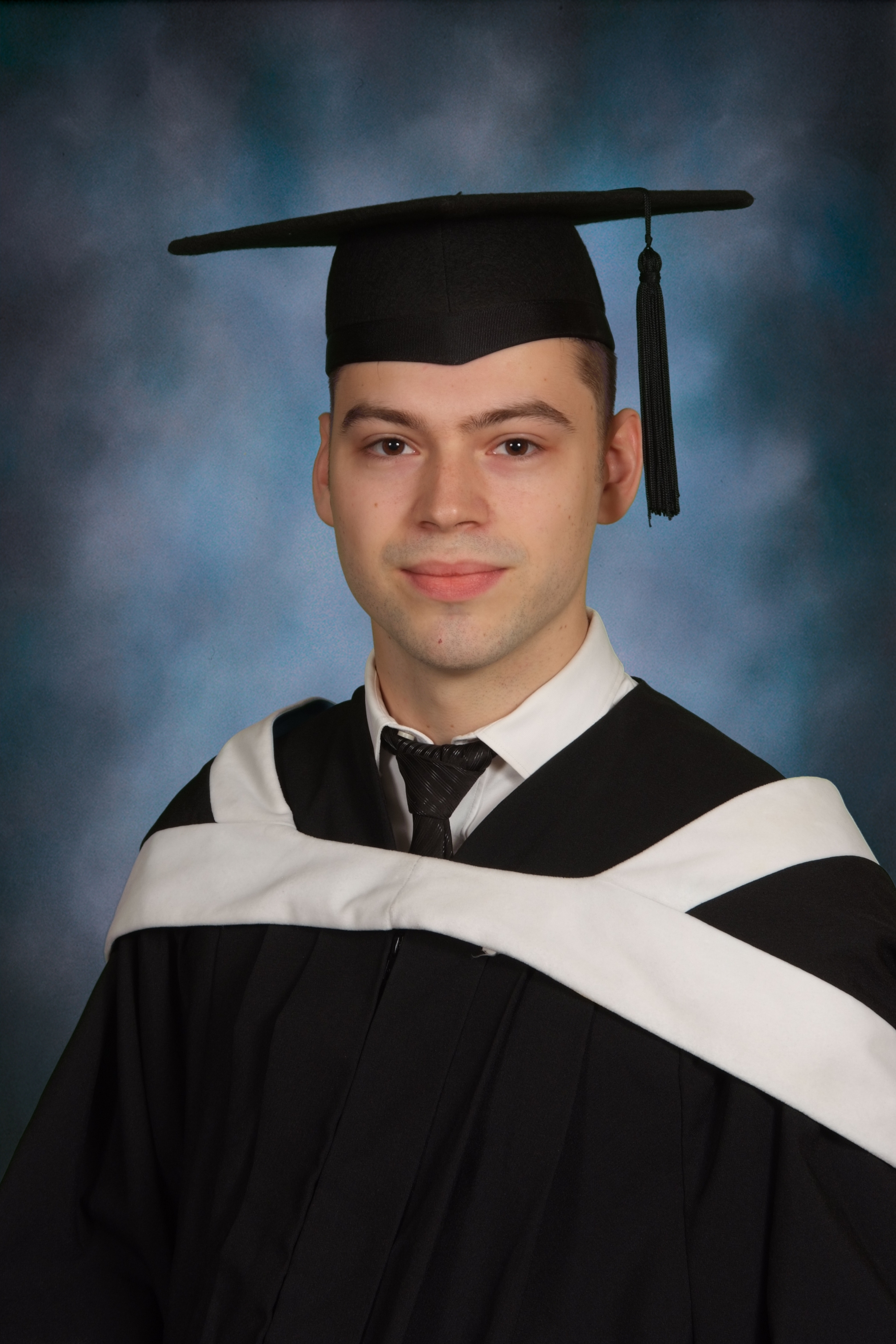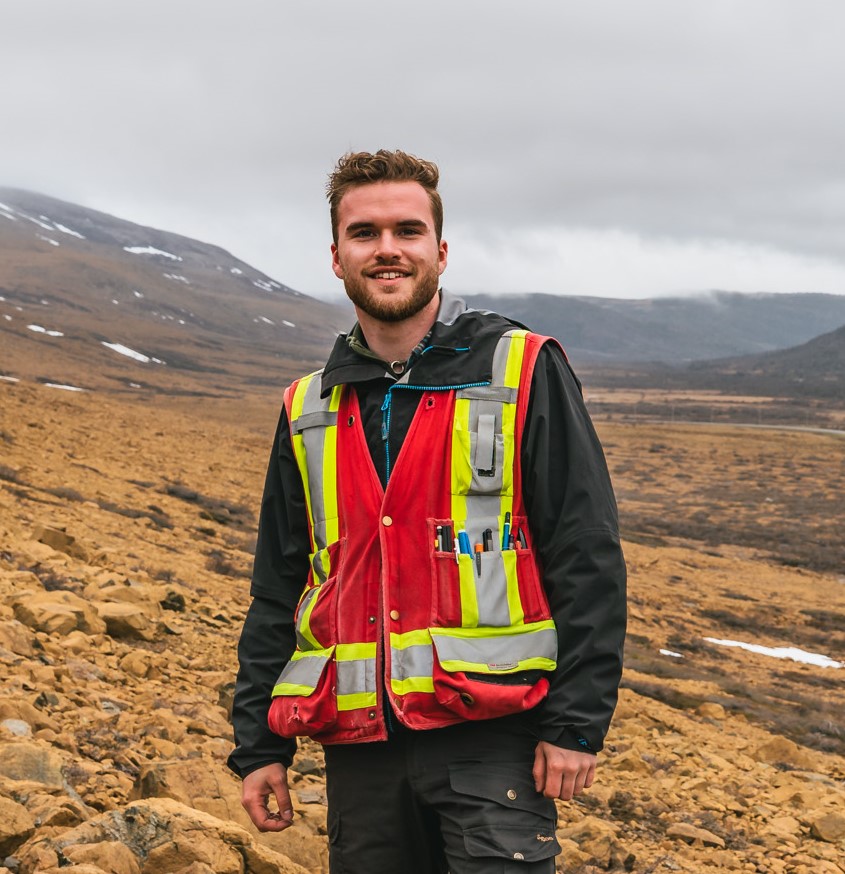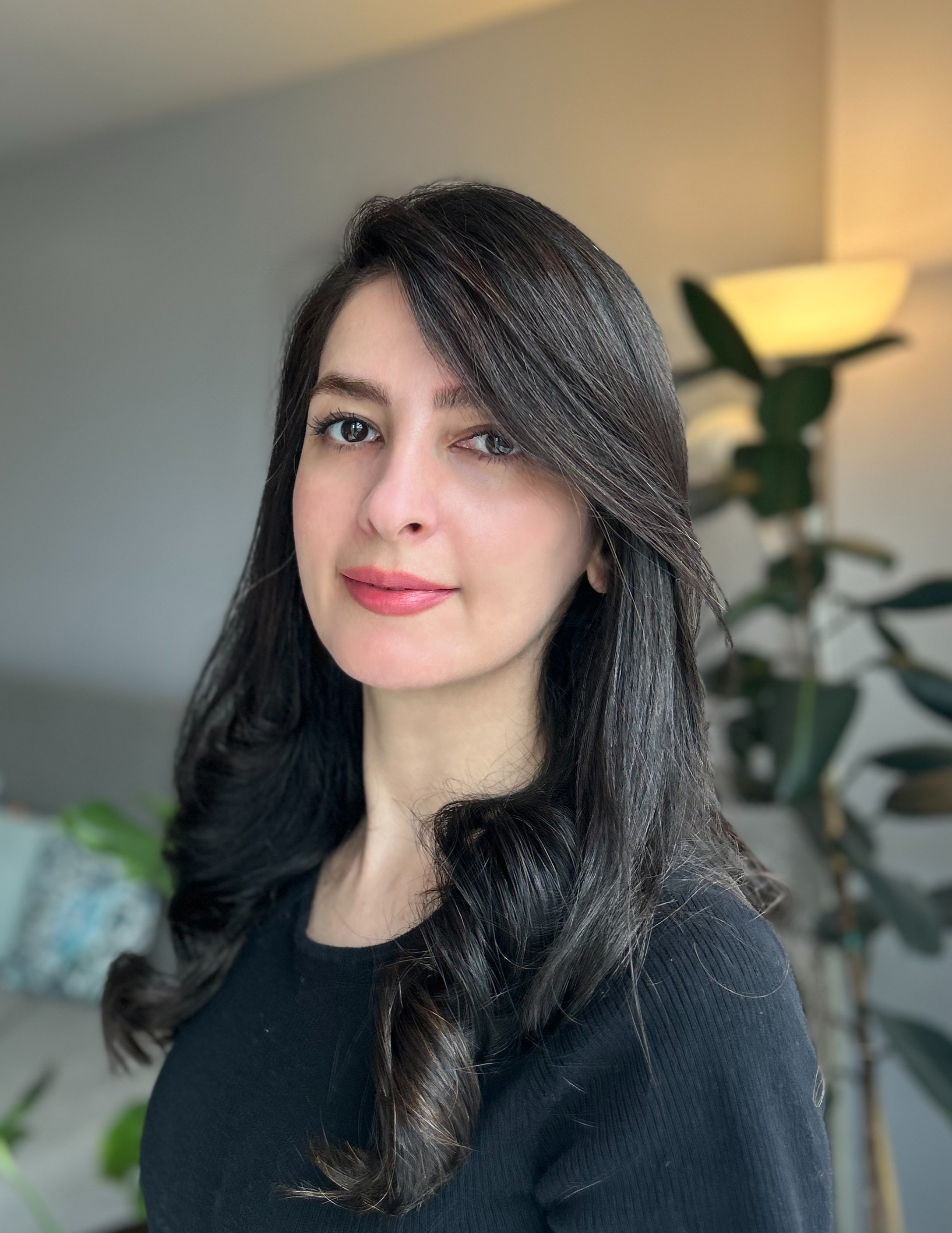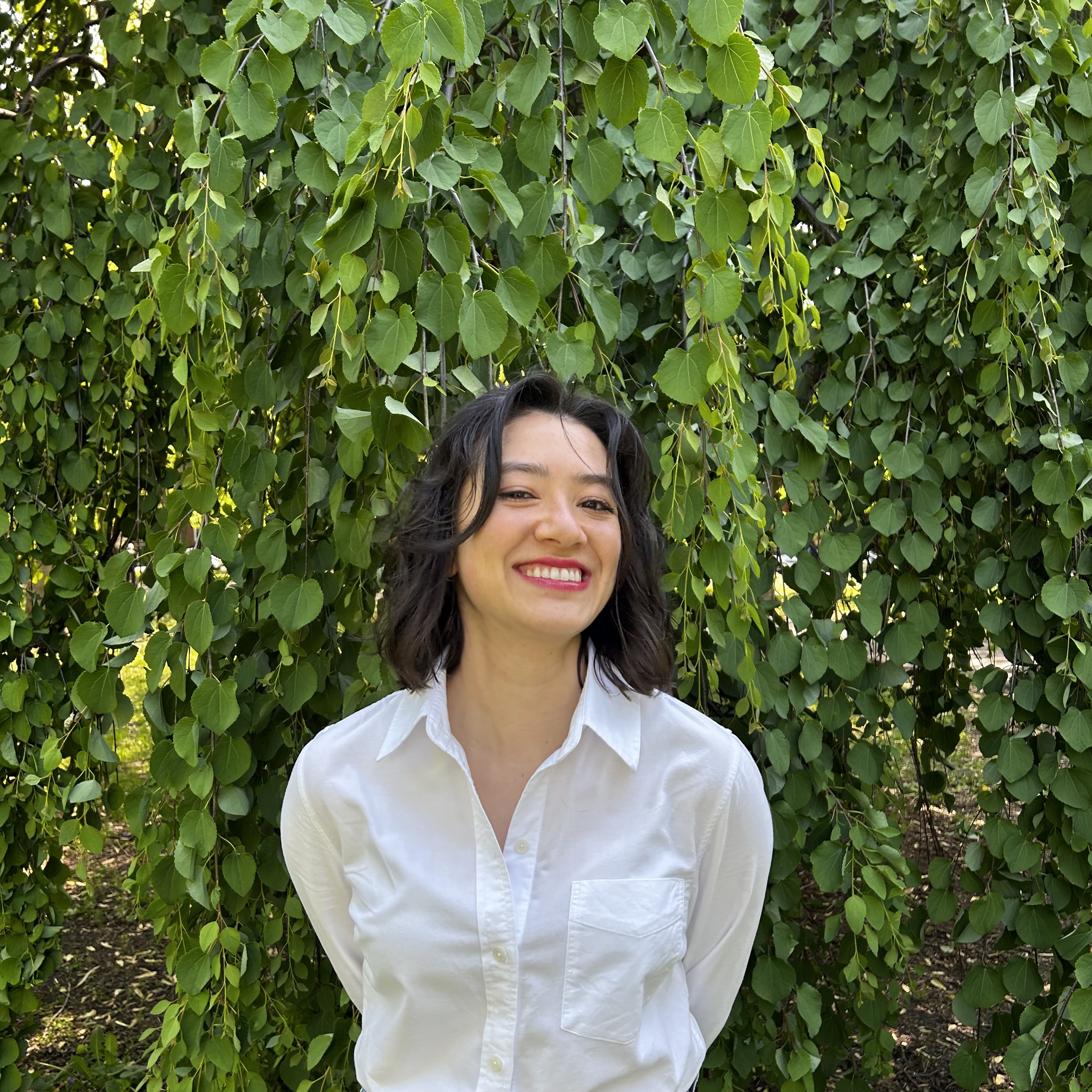The INRS Foundation recognizes the excellence of eight graduating members of the INRS student community, who have distinguished themselves through the exceptional quality of their master's thesis or essay or doctoral dissertation in each of the four research and training centers.
Presented on May 10, 2025 at the 2024-2025 graduation ceremony, thanks to the generous support of donors from the INRS community, the Awards for the Best Theses and Dissertations aim to recognize the rigor, originality and scope of the work carried out by INRS graduates. The Foundation offers winners financial support of $1,000 at master's level and $2,000 at doctoral level.
Nominations were evaluated by an interdisciplinary committee of faculty members, on the basis of scientific quality, the impact of the work and the influence of the results. This recognition testifies not only to the excellence of the laureates' academic careers, but also to their contribution to the advancement of knowledge in fields of importance to society.
Our 2025 winners are :
Prize for the best master's thesis or essay
Cameron Confuorti, Master's degree in experimental health sciences, under the supervision of Professor Isabelle Plante

“This recognition values the challenges met, the hours invested and the sincere passion I put into this research from start to finish.”
- What brought you to INRS? What do you remember about your experience?
What drew me to INRS was the opportunity to get involved in a research project that perfectly matched my scientific interests and long-term goals. I was particularly attracted by Professor Isabelle Plante's expertise and leadership in the field of mammary gland biology and gene regulation. Right from the start, I felt a strong affinity with her supervision, with INRS and with the relevance of the project to my aspirations in molecular biology and oncology.
My experience at INRS enabled me to strengthen my technical and analytical skills, while developing my scientific rigor, autonomy and collaborative spirit. It was a decisive step that shaped my identity as a researcher and confirmed my commitment to the field of biology. - Can you describe the challenge and impact of your research project?
My research project focused on the role of microRNAs in intercellular communication and mammary gland development. One of the main challenges was the complexity of mammary development, a highly dynamic process that evolves over time. The study of miRNAs was also difficult for several reasons. Firstly, they were very small molecules, making them difficult to detect. Secondly, there were hundreds of different variants, each of which could play a specific role, complicating their identification. What's more, their analysis required specialized equipment and advanced technical methods. Very little research had been carried out into the role of miRNAs in this context, particularly with regard to cell-cell interaction. To address this, we designed rigorous experiments enabling us to quantify miRNAs and junctional proteins in vivo across the different developmental stages of the mammary gland and in vitro in breast cancer cells. My work has filled an important gap in the scientific literature and provided new insights that could ultimately improve our understanding of breast cancer, a disease that still affects millions of women worldwide. - What does winning this award mean to you?
This award has a very special meaning for me, as it reflects first and foremost the opportunity I had to work with Professor Isabelle Plante and her team. I am deeply grateful for the guidance, trust and spirit of collaboration that have marked this experience. Beyond that, this recognition goes beyond the usual standards: it distinguishes the extra time, effort and commitment I devoted to exceeding the project's expectations. It recognizes the challenges met, the hours invested and the sincere passion I put into this research from start to finish. - What's next for you now that you've graduated?
For the time being, I'm exploring a career in corporate research, in particular with a contract research organization (CRO), where I can put into practice the scientific skills, critical thinking and experience I acquired at INRS. This path allows me to contribute to concrete projects with a clinical or commercial impact. I also remain open to the possibility of pursuing a PhD in biology or an MBA in the future, depending on how my interests and career goals evolve.
Liam Maw, Master's degree in Earth Sciences, under the supervision of Professor Pierre-Simon Ross

“Winning this award is a great way to round off my research career at INRS, but also an opportunity to raise the profile of Earth sciences.”
- What brought you to INRS? What do you remember about your experience?
The main thing that brought me to INRS was a high-quality research project, supported by close collaboration between my co-directors at the Geological Survey of Canada and INRS, made possible by the co-location of these major research groups. It was a well-conceived, applied project, well supported by an industry partner.
Most of all, I retain the influence of new mentors - both academic and industrial - as well as a great appreciation for the way in which the common goals of research and industry can be integrated and advanced, whether I pursue my career in academia or in mining exploration. - Can you describe the challenge and impact of your research project?
The main challenge of my research was to understand the nature, timing and geological controls of a lode gold deposit in Abitibi, which presents a style of mineralization atypical of the region. My research led to a better understanding of the deposit currently being mined, the regional geological evolution, and also highlighted the potential for the discovery of other gold deposits of this style, which may not have been previously targeted by mining exploration. - What does winning this award mean to you?
I'm delighted to win this prize! It's a great way to round off my research career at INRS, but also an opportunity to raise the profile of Earth sciences. It's a little-known field, but one that's becoming increasingly essential for supplying the metals needed for the energy transition. - What's next for you now that you've graduated?
The next chapter is already well underway for me: I've started work as an exploration geologist for the company that supported my research project. I'm still working on gold deposits, but this time in Nunavut. In this role, I have the opportunity to maintain collaboration with various researchers in order to improve our exploration methods and geological understanding in the various regions where we work.
Afsaneh Shoeib, Master's degree in telecommunications, under the supervision of Professor José Azaña

“This recognition confirms that my work is on the right track and reinforces my commitment to advancing my field.”
- What brought you to INRS? What do you remember about your experience?
What attracted me to INRS was its reputation for world-class mentoring and its culture of collaborative research. From my first conversation with Professor José Azaña, the depth and originality of his group's work convinced me that this was the ideal place to grow. Professor Azaña's infectious enthusiasm for discovery fostered an atmosphere of trust and encouragement that kept me motivated, even when the research became difficult. My experience was enriched by close collaboration with an exceptional team of researchers, in particular Dr. Reza Maram on the industrial side of my project, whose invaluable advice helped me to overcome the many challenges I encountered along the way. In retrospect, my time at INRS was both a rigorous training ground and an inspiring adventure that broadened my perspective and enabled me to become a confident early-career scientist. - Can you describe the challenge and impact of your research project?
My master's thesis presents a novel and simple real-time optical monitoring system for dynamic spectral analysis of telecommunication signals over wide frequency bands. Built from practical linear fiber-optic components, the system provides direct, real-time access to the spectral content of incoming data streams. The proposed system increases measurement speed by several orders of magnitude, overcoming one of the main limitations of current methods for monitoring telecoms signals. It is also cost-effective and energy-efficient, and can be integrated on-line for real-time spectral analysis of any broadband dynamic waveform. This type of signal analysis and processing tool plays a vital role in applications ranging from advanced optical communication networks and next-generation sensor monitoring to autonomous vehicles and medical imaging. - What does winning this award mean to you?
It's a great honor to receive this prestigious award. This recognition confirms that my work is on the right track and reinforces my commitment to advancing my field. I believe this award will increase the visibility of my research and inspire me to pursue ever-higher standards of excellence. - What's next for you now that you've graduated?
After graduating, I continued my research at INRS-EMT as a research officer with Professor José Azaña, developing the main results of my thesis while acquiring new skills and taking on new challenges. At the same time, I'm exploring R&D opportunities in industry, where I hope to translate advanced photonics into solutions that make communication networks greener, faster and safer.
Camille Biron-Boileau, Master's degree in Population Studies, under the supervision of Professor Maude Pugliese

colonne 2

.png)